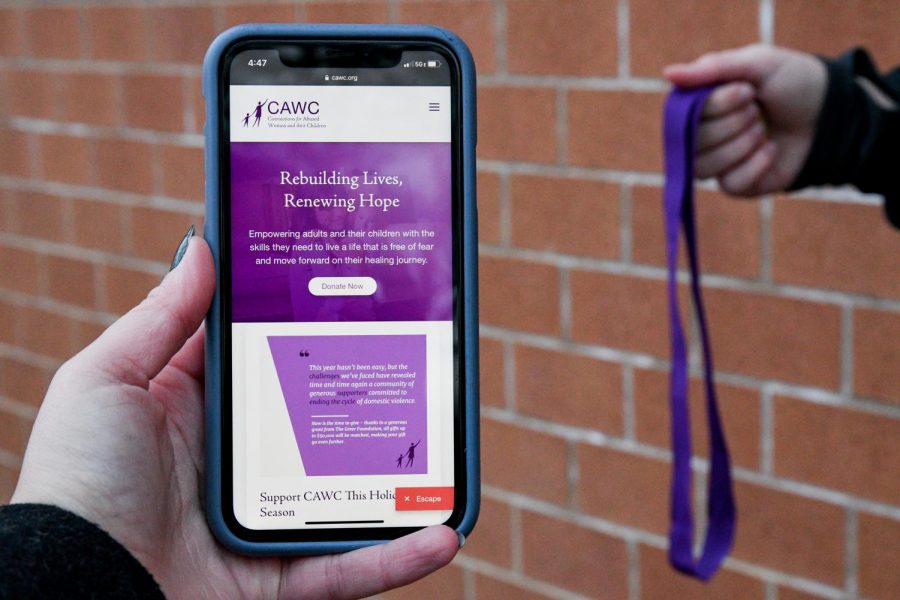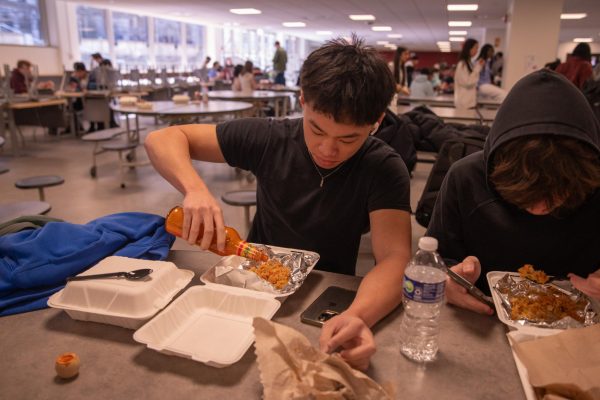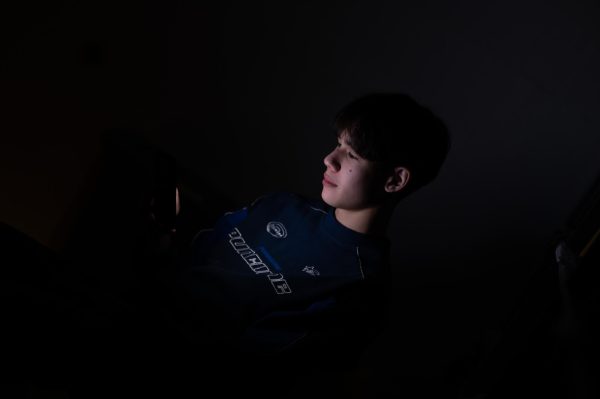Local domestic abuse shelter under strain from pandemic
Connections for Abused Women and Their Children faced a great strain on its already limited services when the pandemic’s stay-at- home order was implemented in the spring of 2020.
“I felt hopeless and afraid. My self-esteem plummeted the longer I stayed with him. I lost any dignity that I had,” a domestic abuse survivor said on the website for Connections for Abused Women and Their Children.
The Chicago-based CAWC has been sheltering and assisting survivors of abuse since 1979. When the pandemic’s stay-at-home order was implemented in the spring of 2020, the CAWC faced a great strain on its already limited services.
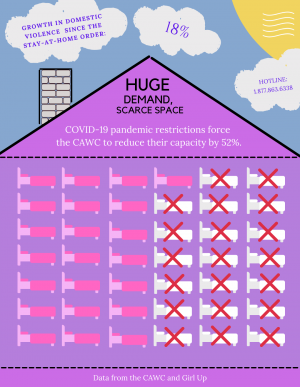
The CAWC experienced an increase in demand at the same time they were forced to reduce capacity to comply with coronavirus safety guidelines. The impossibility of social distancing combined with frequent contact with residents has left facilities’ staff exhausted and anxious, yet they remain focused on their essential mission.
At the CAWC’s shelter program, everyone is working in-person, and the facility is staffed 24 hours a day by people who are fully masked, according to Megan Rosado, direct service volunteer and education coordinator. Even with office dividers and masks, some on-site staff members still worry about their COVID-19 exposure.
The space they do have is dedicated to accommodating as many survivors as possible. Even so, they had to reduce capacity from 42 residents to 22, since sheltering multiple families per room is no longer a possibility.
“We have to monitor everyone’s temperature, and if they are experiencing any symptoms on a daily basis. So we have to make sure we’re communicating with all of the residents,” Ms. Rosado said. “It’s just extra levels of needing to check in on a daily basis.”
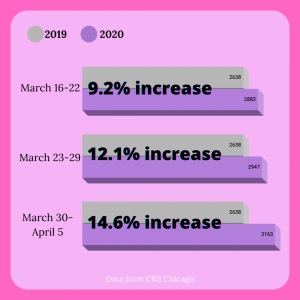
(Téa Tamburo )
Taking these extra precautions puts an extra burden on the staff to monitor their exposure while still interacting with residents and shelter volunteers to their full abilities. Ms. Rosado said she prioritizes working over her own safety.
“When you’re at the job, it’s very intense and the needs are very great,” Ms. Rosado said. “So I think when folks are actually working you’re focused on something else, so it’s hard to actually think about your own concerns.”
According to Ms. Rosado, the staff members are working because they feel a responsibility to make a difference.
“It’s tough,” she said, “but there’s a certain amount of ‘We do what we have to do.’”




















































